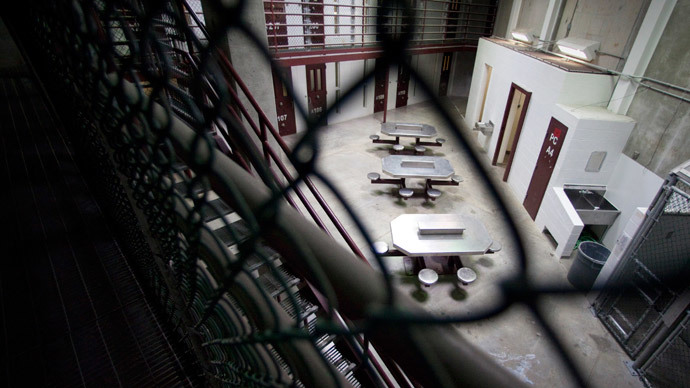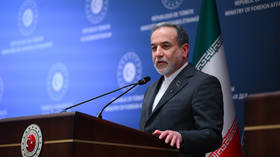Supreme Court spurns two Guantanamo appeals

The US Supreme Court declined to hear two Guantanamo Bay appeals cases on Monday, upholding the decision of lower courts to reject a damages claim by a wrongfully detained Syrian, and block the release of alleged torture photographs of a Saudi national.
In the case of Janko v. Gates (14-650), the Supreme Court let stand a January 2014 ruling by the DC Circuit Court that rejected a claim by a Syrian national for damages after being wrongfully held in Guantanamo Bay for seven years.
US forces in Afghanistan captured Abd al-Rahim Abdul Razak al-Janko, a Syrian Kurd, at a Taliban prison in 2002, and held him as an “enemy combatant” at Guantanamo for years. He was released in 2009 after a federal court judge ruled his continued detention “defied common sense.”
Even though al-Janko had a formal federal adjudication that his detention had been unlawful, the DC Circuit Court rejected his claim for damages in January 2014, relying on a precedent in the 2012 Al-Zahrani v. Rodriguez case that “enemy combatants” could not sue the US government.
READ MORE: Guantanamo Bay detainees rebuked by Supreme Court
Steve Vladeck, a professor at the American University Washington College of Law, wrote at the time that such a ruling might mean that Congress could “foreclose federal jurisdiction” even on meritorious claims, and that this would have “obvious salience far beyond Guantanamo and the specific context of counterterrorism litigation.”
Among this morning's #SCOTUS cert. denials: Janko v. Gates--problematic #GTMO damages ruling that I wrote about here: http://t.co/u4TiXQg3vf
— Steve Vladeck (@steve_vladeck) March 9, 2015
In the second case, Center for Constitutional Rights v. CIA (14-658), a human rights group was suing the government for release of documents pertaining to the “enhanced interrogation” of Saudi national Mohammed al-Qahtani.
Also known as “Detainee 063,” al-Qahtani was captured in Afghanistan in 2001, and held at Guantanamo Bay ever since. Documents describing his interrogations as torture were leaked to the press in 2006. All charges against him have been dismissed, but he remains imprisoned.
A federal court in New York had ruled in September 2014 that releasing the photos and videos of al-Qahtani’s interrogations would “harm national security,” because the images were “uniquely susceptible to use by anti-American extremists as propaganda to incite violence against United States interests domestically and abroad.”
I'm sure SCOTUS suppressing the images of Mohammed al-Qahtani's torture will convince ISIL to stop dressing its hostages in orange jumpsuits
— emptywheel (@emptywheel) March 9, 2015
Following the Supreme Court’s refusal to hear the appeal, evidence of al-Qahtani’s treatment will remain secret from the public.












